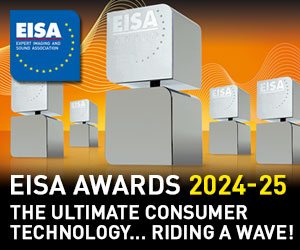tozz
Avslutat medlemskap
Nej jag vet vad UNIX är och att det inte är samma sak som Linux 
Men jag tror Kjell enbart syftar på en viss specifik distribution, inte begreppet som helhet (dvs de som faller under "Trademark or Branded UNIX"). OSX är ett sådant system.
"Dennis Ritchie, one of the original creators of UNIX, has expressed his opinion that Unix-like systems such as GNU/Linux are de facto UNIX systems. Eric S. Raymond has suggested that there are three kinds of Unix-like systems:
Genetic UNIX
Those systems with a historical connection to the AT&T codebase. Most but not all commercial UNIX systems fall into this category. So do the BSD systems, which are descendants of work done at the University of California, Berkeley in the late 1970s and early 1980s. Some of these systems have no original AT&T code but can still trace their ancestry to AT&T designs.
Trademark or Branded UNIX
These systems—largely commercial in nature—have been determined by the Open Group to meet the Single UNIX Specification and are allowed to carry the UNIX name. Most such systems are commercial derivatives of the System V code base in one form or another, though a few (such as IBM's z/OS) earned the trademark through a POSIX compatibility layer and are not otherwise inherently Unix systems. Many ancient UNIX systems no longer meet this definition.
Functional UNIX
Broadly, any Unix-like system that behaves in a manner roughly consistent with the UNIX specification; more specifically, this can refer to systems such as GNU/Linux or Minix that behave similarly to a UNIX system but have no genetic or trademark connection to the AT&T code base. Most free/open-source implementations of the UNIX design, whether Genetic Unix or not, fall into the restricted definition of this third category due to the expense of obtaining Open Group certification which costs thousands of dollars. "
Men jag tror Kjell enbart syftar på en viss specifik distribution, inte begreppet som helhet (dvs de som faller under "Trademark or Branded UNIX"). OSX är ett sådant system.
"Dennis Ritchie, one of the original creators of UNIX, has expressed his opinion that Unix-like systems such as GNU/Linux are de facto UNIX systems. Eric S. Raymond has suggested that there are three kinds of Unix-like systems:
Genetic UNIX
Those systems with a historical connection to the AT&T codebase. Most but not all commercial UNIX systems fall into this category. So do the BSD systems, which are descendants of work done at the University of California, Berkeley in the late 1970s and early 1980s. Some of these systems have no original AT&T code but can still trace their ancestry to AT&T designs.
Trademark or Branded UNIX
These systems—largely commercial in nature—have been determined by the Open Group to meet the Single UNIX Specification and are allowed to carry the UNIX name. Most such systems are commercial derivatives of the System V code base in one form or another, though a few (such as IBM's z/OS) earned the trademark through a POSIX compatibility layer and are not otherwise inherently Unix systems. Many ancient UNIX systems no longer meet this definition.
Functional UNIX
Broadly, any Unix-like system that behaves in a manner roughly consistent with the UNIX specification; more specifically, this can refer to systems such as GNU/Linux or Minix that behave similarly to a UNIX system but have no genetic or trademark connection to the AT&T code base. Most free/open-source implementations of the UNIX design, whether Genetic Unix or not, fall into the restricted definition of this third category due to the expense of obtaining Open Group certification which costs thousands of dollars. "
Senast ändrad:







